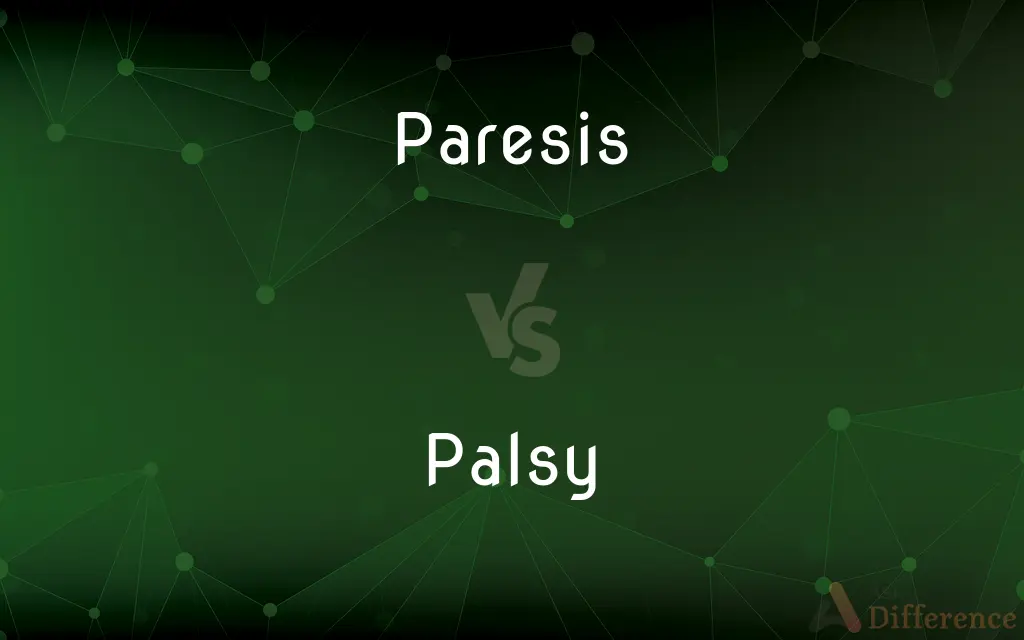Paresis vs. Palsy — What's the Difference?

Difference Between Paresis and Palsy
ADVERTISEMENT
Compare with Definitions
Paresis
In medicine, paresis () is a condition typified by a weakness of voluntary movement, or by partial loss of voluntary movement or by impaired movement. When used without qualifiers, it usually refers to the limbs, but it can also be used to describe the muscles of the eyes (ophthalmoparesis), the stomach (gastroparesis), and also the vocal cords (Vocal cord paresis).
Palsy
Palsy is a medical term which refers to various types of paralysis, often accompanied by weakness and the loss of feeling and uncontrolled body movements such as shaking. The word originates from the Anglo-Norman paralisie, parleisie et al., from the accusative form of Latin paralysis, from Ancient Greek παράλυσις (parálusis), from παραλύειν (paralúein, “to disable on one side”), from παρά (pará, “beside”) + λύειν (lúein, “loosen”).
Paresis
Slight or partial paralysis.
Palsy
Complete or partial muscle paralysis, often accompanied by loss of sensation and uncontrollable body movements or tremors.
Paresis
General paresis.
ADVERTISEMENT
Palsy
A weakening or debilitating influence.
Paresis
A paralysis which is incomplete or which occurs in isolated areas.
Palsy
An enfeebled condition or debilitated state thought to result from such an influence.
Paresis
Inflammation of the brain as a cause of dementia or paralysis.
Palsy
A fit of strong emotion marked by the inability to act
"Flaherty dithered in a little palsy of indignation" (Anthony Burgess).
Paresis
Incomplete paralysis, affecting motion but not sensation.
Palsy
To paralyze.
Paresis
A slight or partial paralysis
Palsy
To deprive of strength.
Palsy
To make helpless, as with fear.
Palsy
(pathology) Complete or partial muscle paralysis of a body part, often accompanied by a loss of feeling and uncontrolled body movements such as shaking.
Palsy
To paralyse, either completely or partially.
Palsy
(colloquial) Chummy, friendly.
Palsy
Paralysis, complete or partial. See Paralysis.
Palsy
To affect with palsy, or as with palsy; to deprive of action or energy; to paralyze.
Palsy
Loss of the ability to move a body part
Palsy
A condition marked by uncontrollable tremor
Palsy
Affect with palsy
Share Your Discovery

Previous Comparison
Lead vs. Cord
Next Comparison
Bracer vs. Gauntlet














































